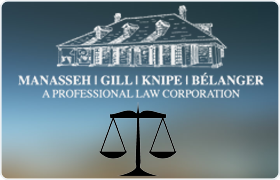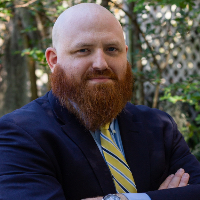 Pride RICO Act Lawyers, Louisiana
Pride RICO Act Lawyers, Louisiana
Sponsored Law Firm
-
 x
x

Click For More Info:
-
James Manasseh, Esq.
8075 Jefferson Highway Baton Rouge, LA » view mapCriminal, Personal Injury, Environmental, Family We Like Trying Cases!
For more than 20 years, the accomplished attorneys at our firm have provided sound legal representation to individuals facing serious criminal charges.
800-654-1690  James Manasseh Baton Rouge, LA
James Manasseh Baton Rouge, LAAttorney At Law - Louisiana, 1988
Paul M. Hebert Law Center, J.D. - 1988
 Frequently Asked Questions
Frequently Asked QuestionsMost F.A.Q.
 Contact UsEmail or Call 24/7
Contact UsEmail or Call 24/7Call today for your initial free consultation.
Not enough matches for Pride RICO Act lawyer.
Below are all Pride Criminal lawyers.
Sponsored Lawyers
1-10 of 43 matches
Accident & Injury, Divorce & Family Law, Criminal
Wyman spent the first four years of his practice with a national firm primarily representing insurance companies in losses sustained as a result of Hurricanes Katrina, Rita and Gustav. Wyman also represented carriers and insurers in property damage and personal injury losses sustained as a result of transportation activities, as well as doing general liability litigation. Due to the very nature of his practice, Wyman had the opportunity to practice in the United States District Courts for the Eastern, Middle, and Western Districts of Louisiana, in addition to over fifteen different state district courts. Wyman has also participated in over fifty mediations, and he understands the importance of maintaining open lines of communication in the litigation process. In 2011, Wyman left that firm to join with Gabe in founding Bankston Duhon, LLC, a firm that focuses on securing justice for those who have been aggrieved. Wyman and his wife Millie are avid quarter horse owners and are members of Calvary Christian Center.
(more)Criminal, Personal Injury, Wrongful Death, Litigation
The managing partner of the largest criminal defense intensive law firm in Louisiana, Manasseh has represented more than 12,000 clients over a twenty-five year career. In addition to the prolific criminal practice, Manasseh oversees a litigation practice that includes personal injury, wrongful death and environmental law. His practice includes the full array of practice experience include city, state and federal courts; motion, trial, appellate and post-conviction practice; mediation, consultation and counseling. In 1990, Manasseh became one of the youngest attorneys to successfully argue before the United States Supreme Court in Foucha v. Louisiana.
(more)Criminal, Felony, Ethics, RICO Act, Divorce & Family Law
Jacob Longman is currently the Managing Partner of Longman Jakuback, APLC. A botique litigation firm, Longman Jakuback specializes in complex and criminal litigation at the trial and appellate level in both state and federal court. Jacob spent time in both law enforcement and the military before attending law school. Before graduating from the Paul M. Hebert Law Center, he was President of the Student Chapter of the Louisiana Association of Criminal Defense lawyers, worked as a student investigator for the East Baton Rouge Public Defender's Office and was a judicial intern at the 19th Judicial District Courthouse. He career has taken him across the state of Louisiana. Several of these have set legal precedents in the field of criminal law. These include State v. Crockett, State v. McQuarter, State v. DiGeralmo, and State v. Steele. He is currently the President-Elect of the Louisiana Associate of Criminal Defense Lawyers.
(more)Accident & Injury, Car Accident, Personal Injury, Workers' Compensation, Criminal
A Louisiana native, Stephen Babcock has developed a reputation for taking on high-profile cases involving catastrophic personal injury matters and business disputes. Born and raised outside of Ruston, La., Stephen attended Louisiana Tech University, where he received a B.S. in marketing in 1997. Already a licensed real estate agent at the time, his intention was to go to law school and become a title attorney. However, not long after he began his studies at Louisiana State University’s Paul M. Hebert Law Center, Babcock changed his mind and realized he wanted to be a trial lawyer instead. Read more below… After receiving his J.D. in 2000, he launched his legal career, joining Allstate Insurance Co., as an in-house trial attorney. A year later, he joined the law firm of McKay Williamson Lutgring & Cochran as an associate attorney handling mostly personal injury cases. In 2003, he ventured out to create his own firm, which would inevitably become Babcock Trial Lawyers. Babcock has been serving the legal needs of clients from his Baton Rouge office ever since. His practice focuses solely on litigation and he has tried cases in state and federal courts throughout Louisiana. A licensed pilot, Babcock often flies to his destinations to more efficiently make use of his time for clients. Although he never turns down the chance to try cases before juries, Babcock is also a strong proponent of alternative dispute resolution and participates in mediations and arbitrations as much as possible. His high-profile cases have included a nearly $2 million arbitration award for a hotel manager against the owner of a Hilton Hotel. He also represented the sportsmen’s organization Ducks Unlimited in a million-dollar federal lawsuit involving a New Orleans artist’s prints. Babcock filed motions for summary judgment in U.S. District Court for the Eastern District of Louisiana on behalf of his client, and the case resulted in a voluntary dismissal. He also made the national news in early 2008 when LSU played Ohio State for the BCS National Football Championship game. Babcock — an ardent LSU football fan — was successful in convincing a state judge to delay a trial that was scheduled to occur at the same time as the game (which LSU won, 38-24). Babcock’s work has earned the recognition of a number of professional organizations. They include being named a Top Ten Personal Injury Attorney Baton Rouge by the National Academy of Personal Injury Attorneys, selection by his peers for inclusion in Best Lawyers of America for personal injury law and commercial litigation, a “Superb” rating in the Avvo legal directory, and “Rising Star” status by SuperLawyers magazine. In addition, Martindale-Hubbell Ratings has given Babcock its coveted Client Distinction Award, for excellence in client service. Stephen has always aspired to provide superior client service, including a 30-day client-satisfaction guarantee. Babcock is an avid outdoorsman and strong supporter of Ducks Unlimited and the Coastal Conservation Association of Louisiana.
(more)




 James Manasseh Baton Rouge, LA
James Manasseh Baton Rouge, LA Frequently Asked Questions
Frequently Asked Questions Contact UsEmail or Call 24/7
Contact UsEmail or Call 24/7




